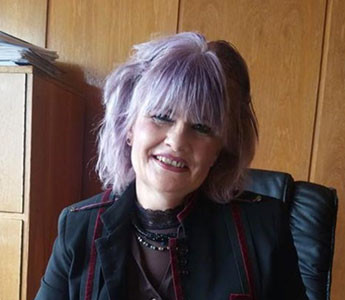To get their hands on a piece of “black diamond”, connoisseurs outbid one another at auction, others, spellbound by the mushrooms’ earthy scent go looking for them outdoors following in the tracks of truffle dogs.
None of this has ever happened at a secondary school in Bulgaria – a quite ordinary school until the moment the most expensive mushrooms in the world gave them the surprise of a lifetime.
The students from the vocational school of electronics in Veliko Turnovo never thought that one day, besides their study of computer science, they would wake up to find they have become truffle hunters. But that is exactly what happened, several months ago, when the incredibly expensive mushrooms costing thousands of dollars around the world, were found to be growing in the schoolyard.
 “We have a schoolyard of 1.7 hectares and there are many different plants growing there – mostly coniferous and deciduous trees,” says headmistress Nelly Nikolova. “In June this year we stumbled upon truffles, probably self-sown. They usually grow around the lichen of deciduous trees, but interestingly, here they are growing around coniferous trees. Our truffles are growing in such quantities that we couldn’t possibly market them. But perhaps once we have picked them we shall know what we have.”
“We have a schoolyard of 1.7 hectares and there are many different plants growing there – mostly coniferous and deciduous trees,” says headmistress Nelly Nikolova. “In June this year we stumbled upon truffles, probably self-sown. They usually grow around the lichen of deciduous trees, but interestingly, here they are growing around coniferous trees. Our truffles are growing in such quantities that we couldn’t possibly market them. But perhaps once we have picked them we shall know what we have.”
Meanwhile rumor of the truffles spread like wildfire, and on the very next day people flocked to the schoolyard with spades and carts. The school was compelled to put up a fence with fence posts and to promote Rex – the dog from the municipal dog pound – to “guard dog”. Still, the forays produced a positive result – all the digging in the yard actually helps the precious mushrooms self-pollinate, the headmistress says.
“If anyone is in need of a truffle – because they are also used as a herb in medicine – we would never turn them down,” she adds. “We have no intention of going into business with these truffles – they belong to the children. But if we do decide to sell them there is a way governed by law, and with the money the schoolchildren will be able to buy whatever they want. We have also explained to a great many people that if they want to try what the mushroom tastes like we do not mind and will help them. I myself had never set eyes on a truffle. Now that I have seen what they look like I cannot say I am very impressed.”
But the ministry of education was, and they helped create the truffle farm with a small sum. The gift of nature growing in the schoolyard has now been included in the school activities with the help of three environmental clubs.
“One of the environmental clubs is connected with natural sciences,” Nelly Nikolova says. “In this club children are given theoretical knowledge of plants and animals, but most of all the plants growing in the schoolyard. The second club focuses on how to preserve nature – whereas it was teachers and staff that used to do that in our own schoolyard, now we are happy to hand this activity over to the students. And they are so enthusiastic – they hoed the yard, made seed-beds, sowed flowers and it turned out really nice. The third environmental club is all about animals because we are like a sanatorium – we have all kinds of animals in the yard like squirrels, lizards, dogs. Under the education ministry’s project we are able to take care of the animals we have on schoolyard territory, to buy them food, to make animal feeders and kennels.”
Probably in April, the students, together with the school staff, will go out to look for the first truffles. Whether they will need a truffle dog is something they will decide on the spot. But the most important thing, the headmistress says, is for them to tend to things around them together, to learn what working means.
Romanian police and military personnel worked as mercenaries in Congo According to a report by the Romanian Ministry of the Interior, 11 of its employees worked as mercenaries in Congo while on sick leave, Digi24 reported. The Ministry..
Since its establishment on April 11, 2022, the Institute for Computer Science, Artificial Intelligence and Technology – INSAIT has achieved a number of successes and continues to position Bulgaria on the world's technological map...
Shortly after the opening of the motorcycle season in Sofia at the end of March, Bulgaria's capital city will host the country's largest motorcycle exhibition . The event takes place from today until April 14 at Arena 8888 Sofia . Between 700 and..
Students and teachers from two educational companies of the National Commerce and Banking High School won awards at the global business competition Youth..
Shortly after the opening of the motorcycle season in Sofia at the end of March, Bulgaria's capital city will host the country's largest motorcycle..
Since its establishment on April 11, 2022, the Institute for Computer Science, Artificial Intelligence and Technology – INSAIT has..

+359 2 9336 661
